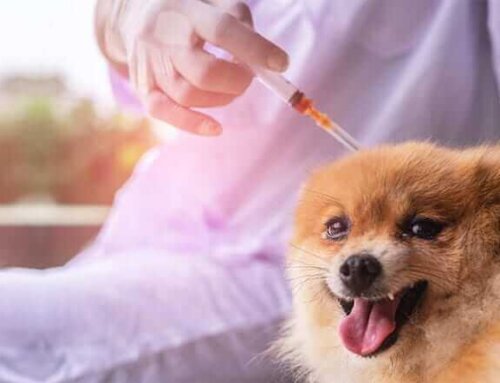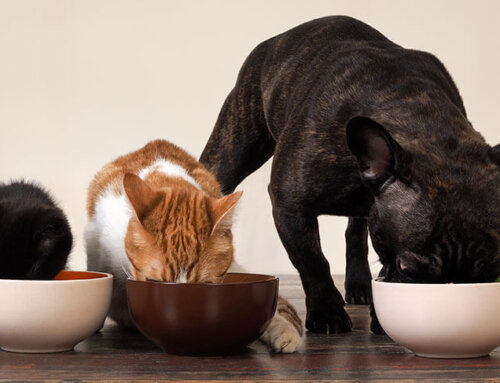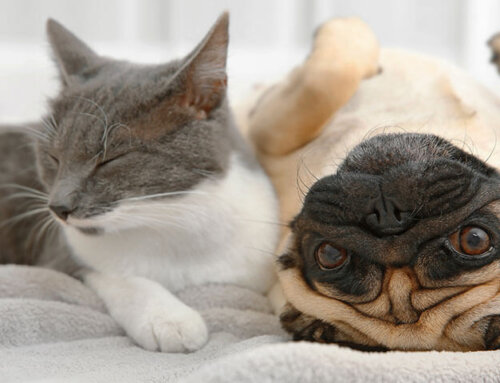Today we are going to discuss how we evaluate kidney function in pets. A pet can become dehydrated from a variety of causes. Diabetics need to drink extra just to stay hydrated when the blood glucose is elevated. Kidney values on a blood profile can be increased in a dehydrated pet even if the kidneys are functioning normally. Sometimes we need to re-check kidney values and run a urinalysis to determine if the kidneys are working or not. Sometimes, when a diabetic is in crisis, the kidney values may be increased simply from dehydration.
Maybe you are thinking, “Joi, your column is on diabetes. Why are you telling us about kidney values??” Well, I had a feline patient come in the other day because her owner thought that she was acting funny. She had been diagnosed diabetic a year ago and went into remission on low-carb canned food (Purina DM) and glargine insulin. She had stayed in remission, while continuing with the low-carb canned food, until she went to the pet sitter a month ago when her family went on a long vacation. Oops! The pet sitter fed her dry cat food instead of her canned food. Her blood glucose was 390 mg/dl. Clearly she had come out of diabetic remission, likely from the dry food. Her kidney values were slightly increased as well. Her urine was concentrated despite the fact that her blood glucose was so high. The concentrated urine told me that her kidneys were working fine. This is when I thought I should teach my readers how to interpret increased kidney values.
What are the markers on a blood profile that clue us into kidney issues? We have long had the creatinine and the BUN to guide us. When these values are increased we know there is something going on in the kidneys. Sometimes it is simply a matter of dehydration causing elevations in the BUN and creatinine. The BUN is more likely to increase in dehydration than is the creatinine, but both can and will rise. There is now a newer and more sensitive test on the market called SDMA that can reveal kidney disease a bit earlier than the BUN and creatinine. Vets use these blood values together with urinalysis to determine kidney function.
One of our goals in veterinary medicine is to catch diseases early. It’s much better to identify an issue early than to find out late in the game when there isn’t much we can do. I own a veterinary practice in South Florida. I’m in heartworm country. Every year we test patients for heartworm as part of the annual exam. Once a pet hits 2 or 3 years of age, I rarely run just a heartworm test alone. Instead, I run a lot of “junior wellness profiles” which are a chemistry, a complete blood count and a heartworm test, and I charge just a bit more than a heartworm test alone. I am a veterinarian who likes to run lab work. I don’t mark the tests up very much to keep them affordable for my clients. I am all about preventative care and early diagnosis of disease. I like having baseline values for my healthy patients. Now and then, we identify disease in patients when they actually looked perfectly normal on physical exam!
Speaking of South Florida, it is hot here! Sometimes I have pets who are perfectly healthy and have increased kidney values on their junior wellness profiles when I can’t even perceive dehydration. This is especially common in the summertime. So when I found I was having folks bring their pets back for a urinalysis I decided to check urine contraction and a dipstick on the same visit as I did my junior wellness profiles. I dubbed this a “Mini UA”. My staff knows to try to collect pee from pets whenever I’m running a junior wellness profile. For my staff’s effort in obtaining urine and checking the urine concentration and running a chemical analysis (urine dipstick), I charge clients a very reasonable 5 bucks. Again, it’s about baseline values and catching disease early. If my patient is a senior, I will likely run the more expensive senior wellness profile which includes a full urinalysis.
Let’s chat more about a urinalysis. I’ve always thought of a urinalysis as a poor man’s chemistry profile. It can tell us so much for very minimal cost! Liquid gold! If urine is concentrated it tells me the kidneys are working. The sediment (that’s spinning the urine in a centrifuge and looking at anything that collects at the bottom under a microscope) tells us if there are crystals or bacteria or cells. The dipstick tells us if there are things like bilirubin or glucose or protein or blood. The dipstick also tells us the pH of the urine which is a reflection of the acid base status of the pet. So much can be learned from a little bit of pee.
Kidney disease is not necessarily all or none. Pets can have kidney insufficiency, meaning the kidneys aren’t working well but overall the pet is compensating for this lack of function by drinking adequate amounts to stay hydrated. If we know a pet has renal insufficiency, we may start a kidney diet and encourage fluid intake. Sometimes, we will even teach clients how to administer fluids under the pet’s skin. When we identify ‘kidneys on the fritz’ we typically re-check bloodwork every few months.
If we catch disease early we may be able to manage the disease with quality life for years to come.
Have a question or comment? Post below or email me at [email protected]. I always enjoy hearing from my readers!
NOTE: Consult your veterinarian first to make sure my recommendations fit your pets special health needs.













I’m dealing with this very thing with my cat right now. He’s been an extremely hard to regulate diabetic. I found the poor guy on the street many years ago and he’s the smartest sweetest cat but so many health problems! Recently he started urinating all over the house which was driving me insane so I brought him in thinking he might have another uti. The vet gave him antibiotics just incase and ran a panel. She said he is very unregulated again and his blood glucose was dangerously high but his kidney function was also quite high. I have brought him home with lactated ringers every other day. In two weeks we will find out if this has helped along with the insulin dose increase or if he actually has kidney failure. It’s so hard having a diabetic cat. Props to anyone else dealing with this.
It really can be difficult with some diabetic pets. After nearly 3 decades of practicing I’m still surprised how easy some diabetic pets are to regulate while others are extremely difficult. Add in the kidney disease and you’ve got your hands full. Good job giving subcutaneous fluids at home! That should improve the quality of life and the duration of his life.
If you use a prescription renal diet, know that they are higher in fat to improve palatability. Renal diets also significantly help extend a kidney patient’s life. If your cat has pancreatitis along with the diabetes, know that the higher fat in the renal diets could trigger a flare up of the pancreatitis so watch for that! Renal diets come in dry and canned. The canned versions obviously have lower carb content then the dry kibble versions.
One of the better prognostic indicators of how long a kidney pet will last is appetite. Know that vet med has made great strides in appetite stimulants over the last few years. There are ghrelin analogs (Entyce for doggies and Elura for kitties) that work great. There has long been oral mirtazapine, and a few years back a company also made a transdermal version.
You might have a peek around iris-kidney.com which is a website devoted to pets with kidney disease.
I wish your kitty heath and longevity.